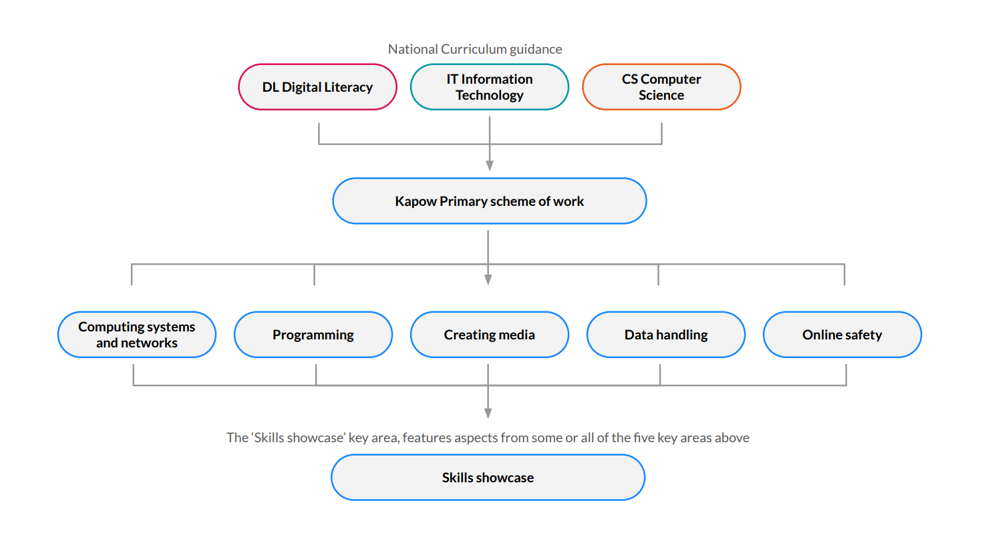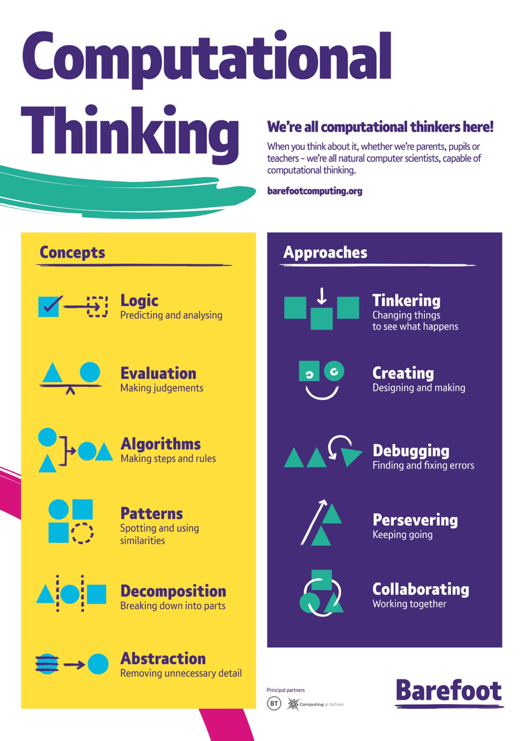- Home
- Curriculum
- Subject Information
- Computing
Computing
vision statement
CULTURE
“Everybody should learn to program a computer, because it teaches you how to think.” - Steve Jobs, former CEO and creator of Apple
Computing is a much-loved subject within school which inspires children to think logically, improve reasoning skills and apply understanding to a wide range of curriculum areas. Computing at St. Mary’s is inclusive, stimulating and with the introduction of the new scheme, is rigorous in its approach in delivering the National Curriculum targets to a high quality and in-depth standard for each age range.
COMPUTING: INTENT
At St. Mary’s Catholic Primary School, we have adopted the Kapow scheme of learning for the 2024 – 2025 and 2025 - 2026 academic years. This is helping to enhance the delivery of the curriculum as well as broadening the skills taught across the year groups. It is also supporting teaching staff with their knowledge and understanding of more complex areas of computer science and programming. The curriculum is planned to operate on a two-year rolling programme.
Our computing curriculum aims to instil a sense of enjoyment around using technology and to develop pupil’s appreciation of its capabilities and the opportunities technology offers to create, manage, organise and collaborate. Experimenting with software and programs forms part of the ethos of the scheme as we want to develop pupil’s confidence when encountering new technology. Through our curriculum, we intend for pupils not only to be digitally competent and have a range of transferable skills at a suitable level for the future workplace, but also to be responsible online citizens.
COMPUTING CURRICULUM FLOWCHART

COMPUTING: IMPLEMENTATION
Teachers use the Kapow planning and online resources to support the teaching of Computing. Computing lessons are one hour per week in KS1 and KS2 classes, in EYFS, computing skills are taught through continuous provision and on a 1-1 basis where needed. The planning covers the strands documented above and is delivered over our two-year rolling programme.
ADAPTIVE TEACHING
We recognise that there are children of differing abilities in all our classes, and so we provide suitable learning opportunities for all children. We achieve this through a range of strategies which are differentiated by expected outcome and support from peers or adults.
CURRICULM PLANNING
The long-term and unit plans map out the skills and themes covered over each term for each class. These plans define what we will teach and where links to prior learning can be built on. Key information, specific vocabulary and links to curriculum enrichment are included to inform teacher’s planning. When and where appropriate, opportunities will be encouraged to promote computing related learning across the curriculum.
COMPUTING: IMPACT
Through high quality teaching of Computing, we will see the impact of this subject in different ways, for example through books, pupils’ confidence and competence when using technology as well as pupil voice. Work is stored online as well as via hard copies (depending on the lesson) and will show that a range of themes are being covered, concepts are visited, then revisited and cross curricular links are made where possible. In KS1, there may be other forms of capture too such as a floor book. Assessments and monitoring will show standards in Computing will be high and will match standards in other subject areas.
ASSESSMENT
Assessment in Computing is an ongoing process. Teachers will make informal judgements about pupil’s progress and attainment as they observe them throughout lessons and mark their work (where applicable).
At the end of each term, teachers will decide on a pupil’s level of attainment noting which children are:
- working above the age-related expectations
- working at the age-related expectations
- working towards the age-related expectations
These judgements will be made in line with the Long-Term Curriculum Plan and National Curriculum.
COMPUTATIONAL THINKING
The following poster demonstrates how we teach computational thinking throughout our Computing lesson sequences.
